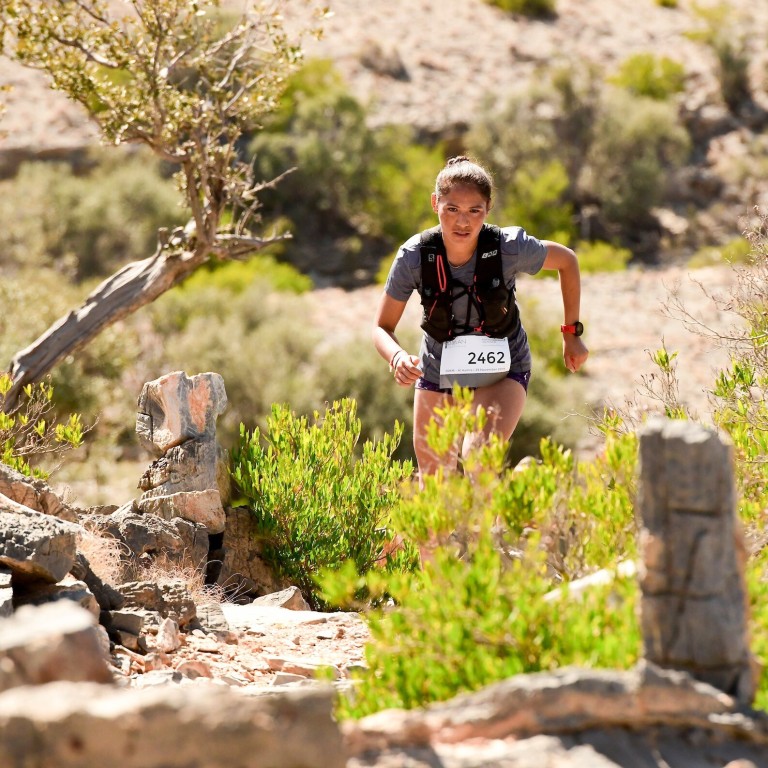
Nepalese runner Budha escapes arranged marriage to make a life on trails, dedicating herself to ‘something greater’
- Sunmaya Budha lies to her parents about postponing marriage to seek an education and instead pursues a running career
- She wins races such as Gaoligong and Oman by UTMB, proving herself a match for the best in the world
When Sunmaya Budha’s parents heard on the radio that she came third in a running race, they were extremely surprised. Their 17-year-old daughter old was supposed to be dutifully studying – after all, she had convinced them to delay arranging her marriage and let her leave the village to get an education. She certainly was not supposed to be running.
Budha was told to return home immediately and get married. Neighbours talked about her scandalous behaviour. But she refused. Alone, with no income and no safety net, she was not stepping off her path to become a professional mountain runner.
High in the mountains of Western Nepal, the young girl who ran barefoot and won every race in school was about to turn societal norms on their head and “make her parents” proud – even at the cost of deceiving them.
She found a coach and a club in the Jumla district of Karnali province who encouraged girls to join – going against patriarchal local traditions – and then opened doors to the world.
Mira Rai brings first all-women Trailwalker team from Nepal
“I knew that education was very important, but I wanted to do something greater by dedicating myself to sport,” she said. “Even though I lied to my parents, I justified my decision [to drop out of school] by doing what I was truly interested in.
“I hoped to realise my hopes and dreams in trail running, and to make my parents proud by doing better in running that I would have done academically,” she said.
Budha was born in 1998 to peasant farmers in a village in Jumla district. Jumla is a very poor area in an already poor country, and the two career choices available to men are subsistence farming and manual labour. Women usually do not have the luxury of any choice at all.
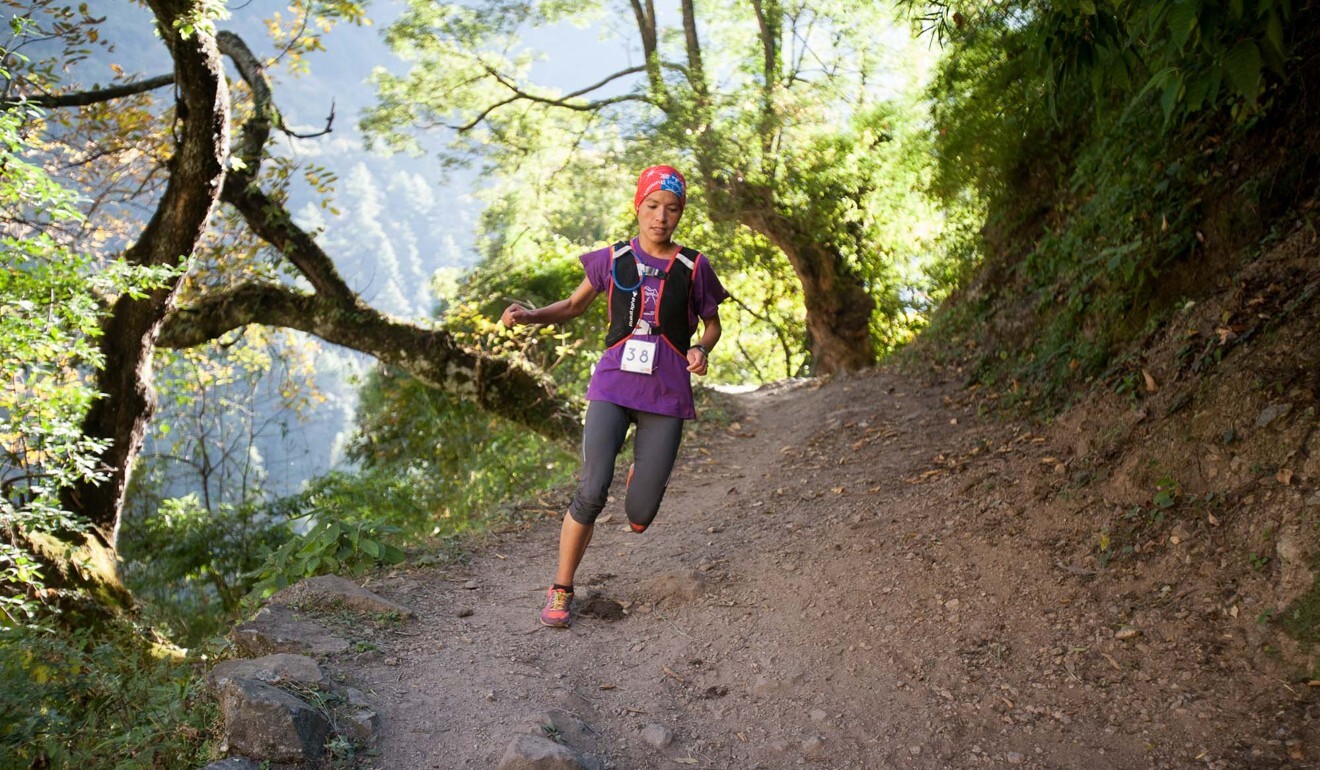
“It is very tough living in Jumla and it even tougher to be a girl,” said Jimi Oostrum, a Dutchman who works for Unicef, has lived in Nepal for 17 years and is part of the running community.
“A woman’s existence here is much defined by the marriage that they are in, the family they serve, and the children they raise. They are often not recognised as an individual,” Oostrum said.
Mira Rai brings first all-women Trailwalker team from Nepal
“Life in Jumla is very tough, but you become incredibly tough. Everything you need is far away. Not in terms of hours, but in terms of days – of walking,” Oostrum said.
This environment endowed Budha with the toughness of an infantry soldier, but she was also blessed with talent. “I won every race in my school. Every distance, always.” She loved running “more than anything”.
In 2013, she represented Jumla district in the 1,500 metres at Rastrapati Running Shield, a school athletics event. Budha had no running shoes and raced barefoot, as she always did.
She came second but only because she stopped early, confused where the finish line was. On the podium, she realised that “running could be something in my life”.
Though Nepal’s high-altitude mountain guides, Sherpas, have a worldwide reputation, little was known about their mountain runners. Male athletes like Bhim Gurung and Samir Tamang have podiumed in some of the world’s most prestigious mountain races. In 2017, in Italy, Gurung took down a record held by Spanish mountain running superstar Killian Jornet. Then a girl called Mira Rai came along.
Born into hardscrabble poverty of Nepali hills, school dropout Rai went form child solider in the Maoist insurgency to one of the world’s best mountain runners and Nepal’s national hero. She was named National Geographic Adventurer of the year in 2017.
When Budha heard of Rai on the radio she decided to become “like sister Mira” – run, win races and travel the world. But she needed a coach – a “guru.”
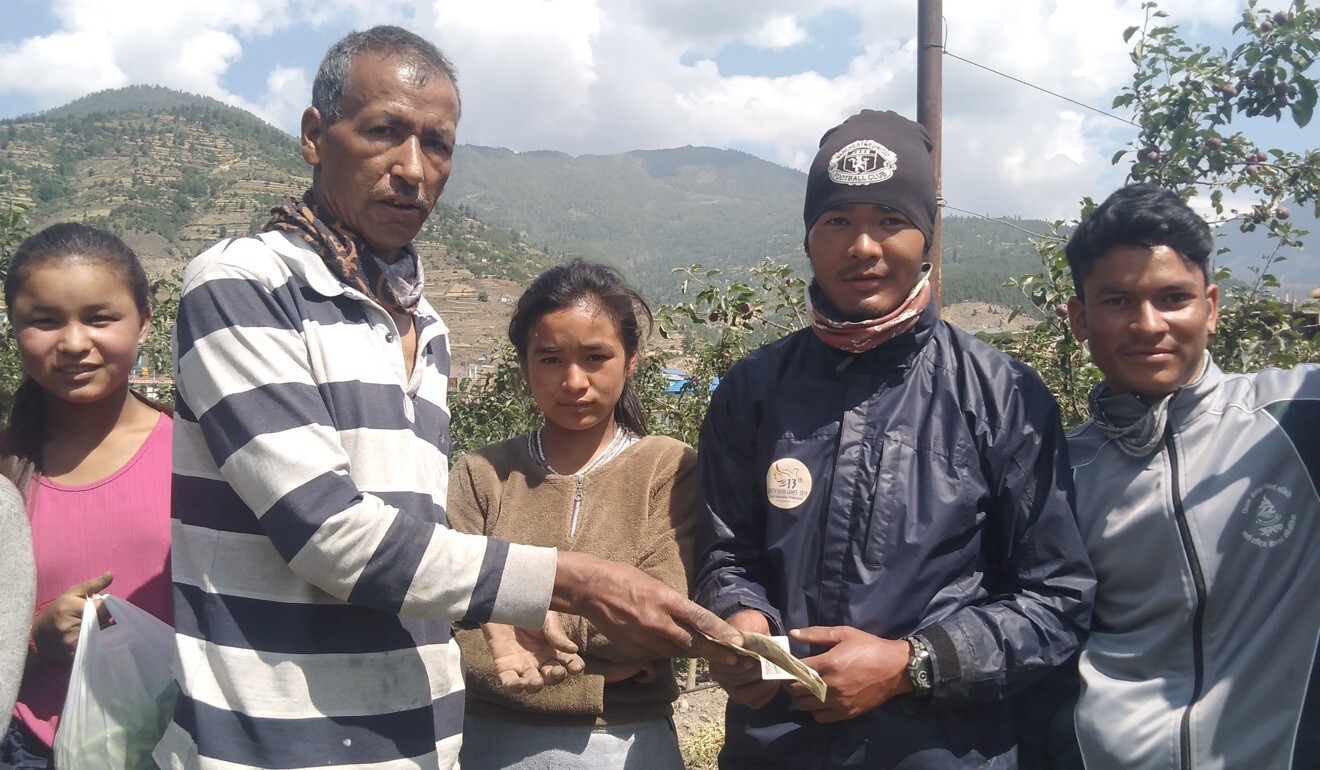
The club helps boys and girls to join the military. Budha, though, had no plans to be a soldier, she wanted to be a mountain runner.
In 2015, she finished high school at 17. “Her older brother told Budha to get married and go live in her husband’s house. Her father was also convinced this was the right thing to do,” said friend Salima Tamang.
Budha pleaded with her family to let her get an education first. They agreed, reluctantly, and she was sent to Jumla Bazar to study to be a teacher. But her real aim was to join her guru Rokaya and run.
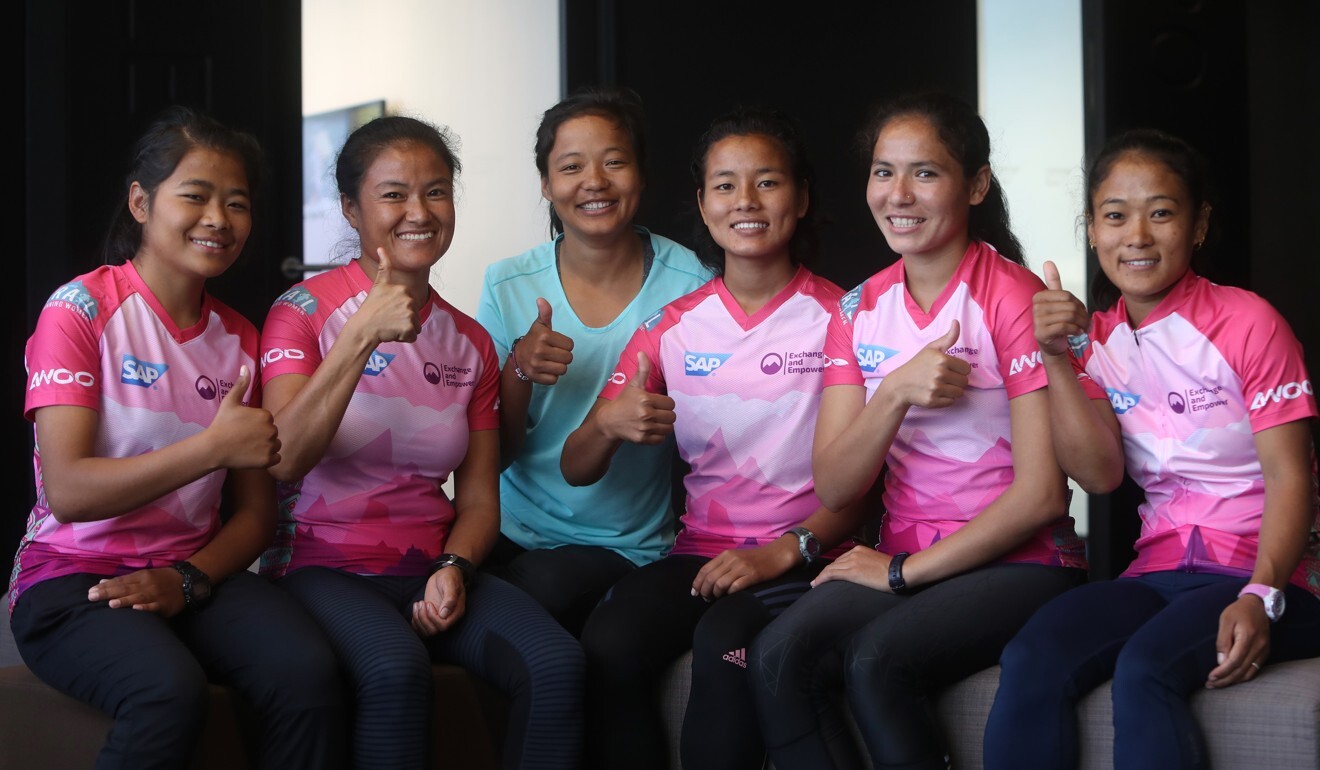
She quickly fell behind in her studies – running full-time left her too drained for the classroom. The small sum that her parents had scraped together was quickly spent and she often went hungry, borrowing money to survive. She soon dropped out of school altogether.
For one year she ran in the traditional Nepali female costume called kurta suruwal – baggy trousers and a blouse, but she no longer trained barefoot – for US$8 she bought a pair of sports shoes. After a year she earned her official Karnali Running Club tracksuit.
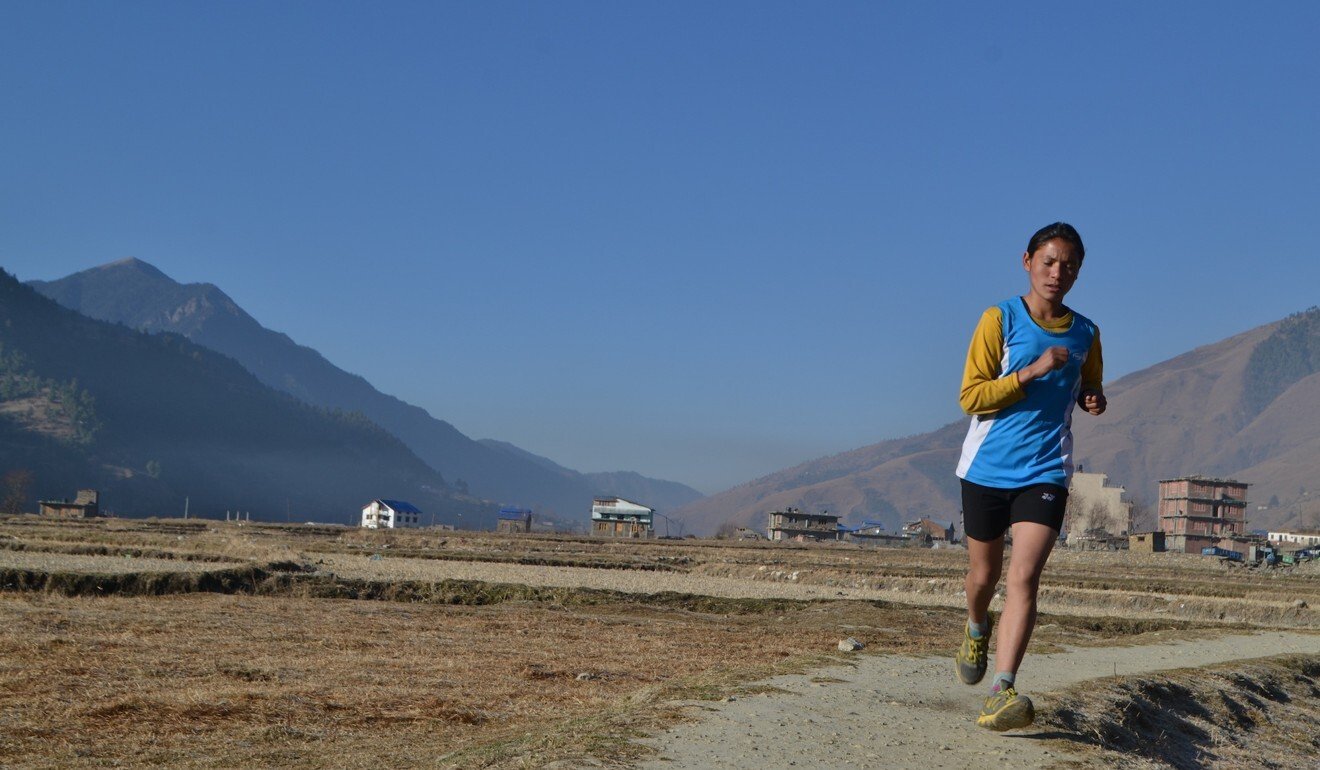
“Wake up, two or three hours of training, come back. Some days I was too tired to cook, so I would sleep, then wake up, have a snack, go for training again. That’s how my days went.
“I did not know about proper diet then,” she said. “I only ate dhal bhat [rice and vegetable curry]. I learned about diet only much later – protein, fresh vegetables, fruit. I had no access to fresh vegetables and fruit. I used to have trouble sleeping because I was too tired, too hungry.”
All the time, she was getting faster, winning or making podiums in almost every race, waiting for her big break.
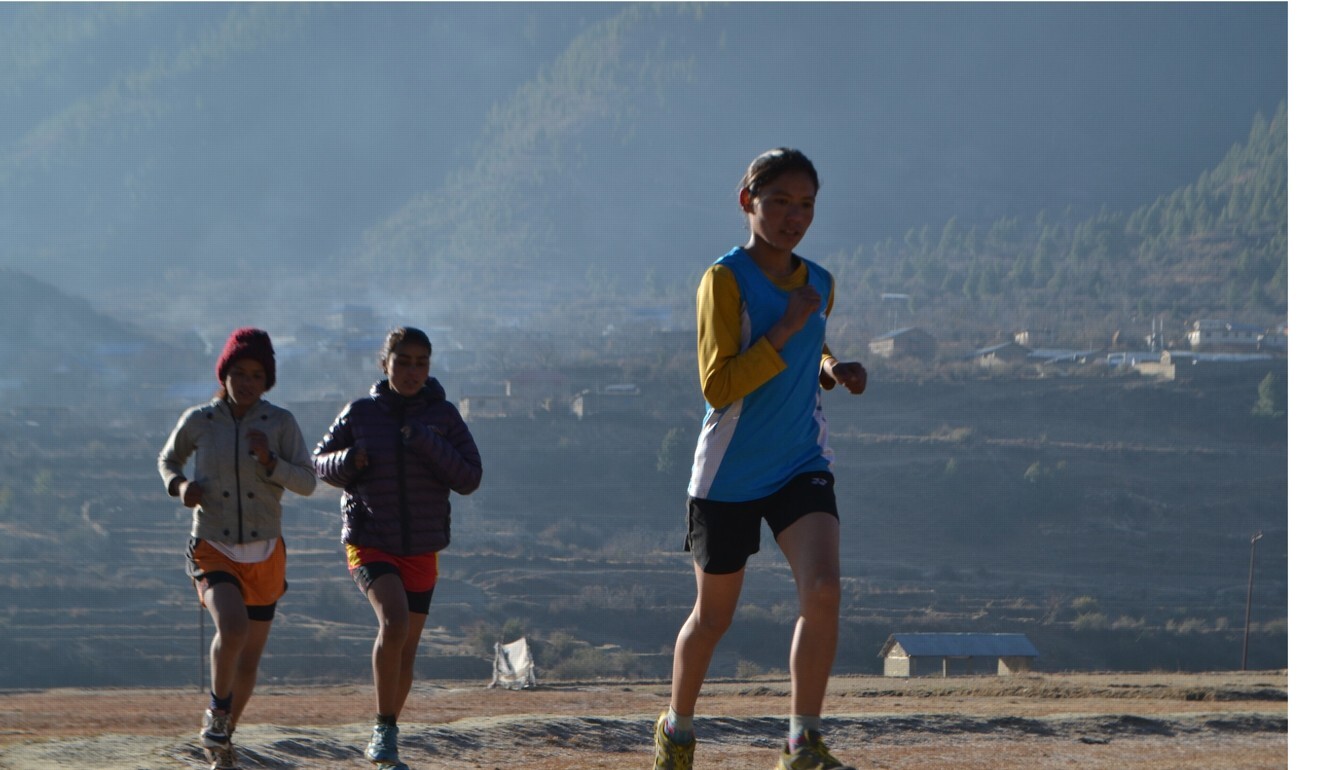
That came in 2016 when she met Rai at a race. The two clicked and Budha became Rai’s “little sister”.
Rai brought Budha to her first international event – a 130km multi-day ultramarathon called Manaslu Trail Race. The organisers gave Budha and two fellow students from Karnali Running Club free entries, as the fee was over US$1,000.
Budha won the female division with ease, coming fourth overall. Relying on the most basic of equipment and clothing, she crushed records for every daily stage of the race. Organiser Richard Bull said: “Such talent clearly needed a bigger opportunity”.
Mira Rai welcomes world’s best to Nepal hoping to inspire the next generation of women
The opportunity came from Hong Kong, where the trail running community had already been supporting Nepali runners.
Funds were raised for Budha to travel for the MSIG Lantau 50km race that also doubled as Asian Skyrunning Championships and a vertical kilometre race – 1km up, from sea level to Lantau Peak.
Budha came second in both – she thought that the elite Japanese athlete she let pass right at the end of the vertical kilometre was “a boy, very short hair”. In the 50km race, she was beaten only by the reigning trail running world champion Caroline Chaverot. As the first Asian athlete, Budha was awarded the Asian Skyrunning Championship title.
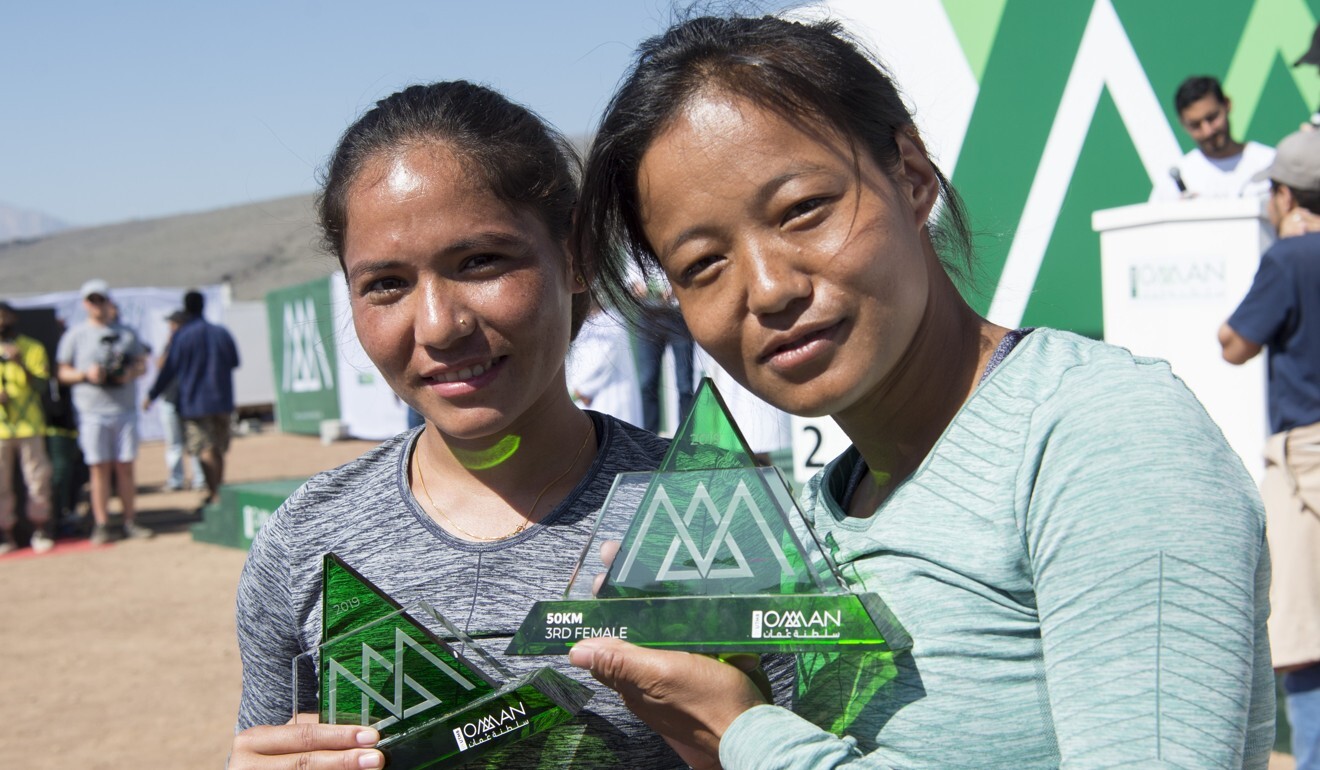
She also won her first prize money – HK$4,500 (US$580) – more than half a year’s average wages in Nepal.
Race organisers around the world took notice. In 2017, Budha was invited to Yading Skyrunning Festival in mainland China, a high-altitude race on the skyrunning world tour. She came fourth in an elite field.
Europe was next. In the Marathon Du Mont-Blanc that brings together the best European mountain runners, Budha finished seventh female and 40th overall.
At every race, Budha was learning more about strategy, nutrition and hydration. Her best distance was around 50km, and the longer and steeper the ascents, the better.
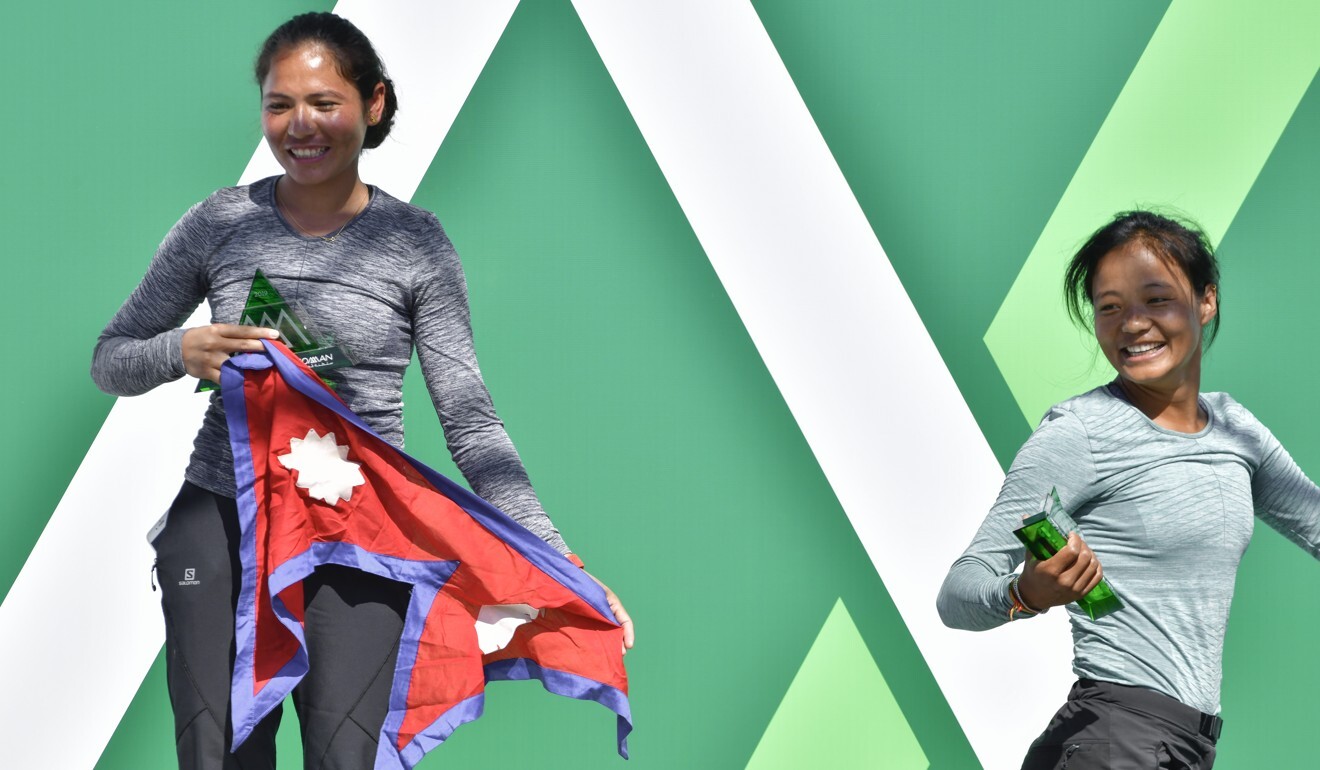
Then another invitation arrived from China, for one of the premier trail running races – 2018 Gaoligong by UTMB. Budha threw herself into training.
She won, destroying the 55km division, beating American professional Meredith Edwards by over an hour, and narrowly missing out on placing in the overall top five.
Nepali media reported at length on Budha’s triumph, and at Kathmandu airport a vehicle was hired as a victory float, with people holding up posters and signs to welcome their champion back home.
Budha’s parents were impressed.
Budha still lives in Jumla and trains with her guru. She is far from secure financially – prize money is thin in trail running. Shy, speaking basic English, and not adept at self-promotion on social media, Budha has been overlooked by sponsors.
Despite it all, she is now helping her family with money. Her parents still put pressure on her to drop running and get married – the only secure future they see for Budha is that of a wife and a mother.
But there are now two Budhas – a timid young girl who rarely speaks, all-too conscious of her humble background and lack of education, and the mature, confident woman that materialises at the race start line.

